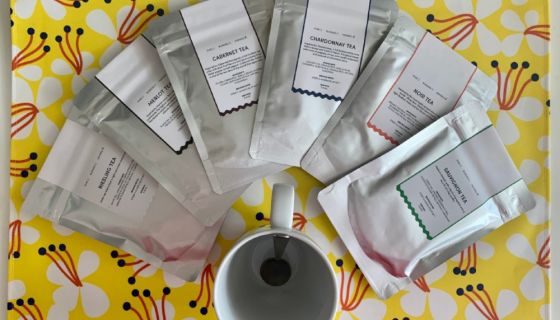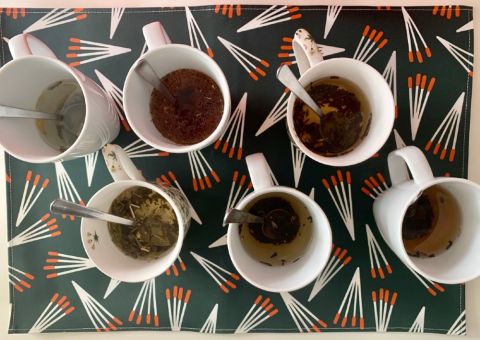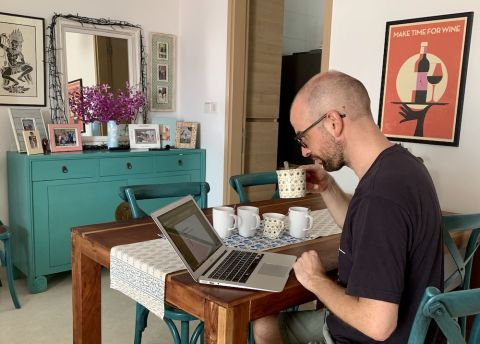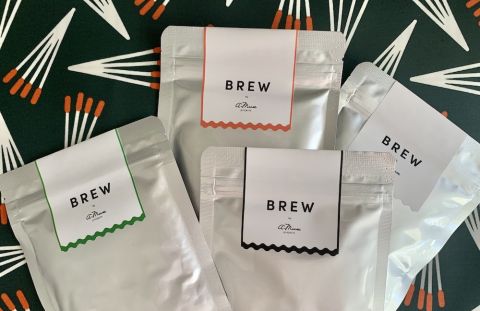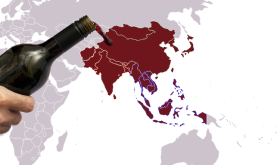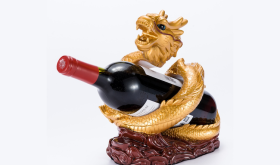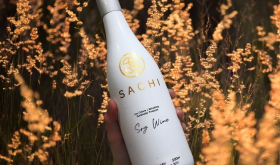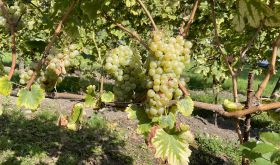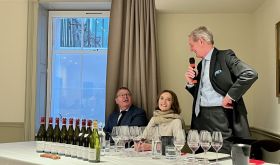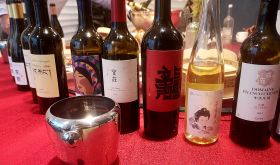Describing flavour in wine is a combination of literalism, metaphor, guesswork and artistic licence. Despite the intricate diversity of language, effectively describing wine remains an approximate pursuit at best. All over the world, English is wine’s lingua franca, and wherever corks are pulled, the same fruits, flowers, minerals and even animals are referenced in a valiant attempt to capture wine’s infinite complexity.
Even in Asia, where those same references may have limited local resonance, Pinot Noir is compared to strawberries and Sauvignon Blanc to gooseberries. The potential confusion only escalates when descriptors become more florid, evoking Alpine meadows or fusty libraries or stinky stables.
As often as not, those descriptors are more figurative than literal, but either way, nobody is suggesting that you could accurately recreate the flavour of a wine by assembling the ingredients of a tasting note.
Or are they?
Conjuring vinositea
Asia’s native drink is tea, described as the other terroir drink by Jameel Lalani, and whose flavours can be as diverse as those of wine. Here in Singapore, resourceful local tea company A.muse Projects has created a range of teas that are ‘wine-inspired’ by blending together components that echo the flavour of six different wines.
To be fair, they are not claiming to literally recreate the flavour of a given varietal, but even so, the temptation to try and identify all six in a blind tasting was irresistible. A half-dozen mugs were duly prepared and the infusions brewed. Would it be vinositea or calamitea?
For my own performance, it was the latter: I identified precisely none correctly, although I came teasingly close with some of them.
In most instances, the tea had flavours that were recognisable from wine descriptors: perhaps the most apparent example being the lemongrass and jasmine that make up the Riesling blend (even though I thought it was actually Sauvignon Blanc).
The blackcurrant and liquorice elements of the Merlot should have been a giveaway, but I found only a restrained herby character that put me in mind of a more neutral white wine style. Whereas the papaya, vanilla and cinnamon of the Chardonnay blend sounds like another dead cert – yet despite noting down malty and caramelised flavours, I still managed to get it wrong.
However, I’ve made far worse misidentifications on actual wines, so the authenticity of the flavours isn’t on trial here. The real question is whether the teas taste any good, and what we can learn about how we describe drinks.
To this amateur, it was delightful to experience such a range of flavours, and I thoroughly enjoyed drinking five of the six blends. Only the Sauvignon Blanc tea tasted unpleasant to me, which might actually make it the most successful imitator of the range. Harsh but true.
Overall, their resemblance to the actual taste of wine might be only tangential – in exactly the same way that Ch Haut-Brion doesn’t literally taste of warm bricks and Savennières doesn’t taste of wet sheep. But what really matters is the experience of the drink, the sensations and the enjoyment it brings.
This set of brews illustrates the wonderful diversity of flavour both within and without the world of wine. Furthermore, it’s a welcome reminder that describing those flavours, in any language, presents an interminable yet irresistible challenge.
Tasting wine-inspired tea
Here are the notes I took during the tasting, as well as my initial guesses (made immediately) and final guesses (made after tasting and comparing all the teas). I've also included the actual identity, and the ingredients that go into each blend.
Tea one
- Nose: spice, cinnamon, clove and maybe a bit of red fruit and rose
- Palate: lots of spice and richness. Cherry fruit, and a touch of mint.
- Initial guess: Cabernet Sauvignon
- Final guess: Pinot Noir
- Actual identity: Cabernet Sauvignon
- Ingredients: Pu’erh, cinnamon, vanilla beans, raisins, cloves, safflower petals
Tea two
- Nose: malty, dark, maybe something like liquorice or chocolate?
- Palate: definitely malty and caramelised somehow
- Initial guess: could be Chardonnay perhaps? Or Merlot/Cab?
- Final guess: Cabernet Sauvignon
- Actual identity: Chardonnay
- Ingredients: Oolong, papaya fruit, vanilla bean, cinnamon, rose petals, orange peel
Tea three
- Nose: green, herbal style, restrained, delicate
- Palate: fairly neutral – perhaps a clue for Chardonnay? Slight herby aftertaste.
- Initial guess: is this supposed to be Riesling?
- Final guess: Riesling
- Actual identity: Merlot
- Ingredients: black tea, blackcurrant fruit, liquorice pieces, blue malva petals
Tea four
- Nose: sweet, Rooibos-style scent with tropical notes
- Palate: definite Rooibos character and lots of ripe fruit
- Initial guess: crowd-pleasing, friendly – Merlot?
- Final guess: Merlot
- Actual identity: Pinot Noir
- Ingredients: organic Rooibos, dried mango pieces, dried blueberry pieces, hibiscus, cornflower petals, rose petals
Tea five
- Nose: strong lemon scent – this must be Sauvignon Blanc, surely. Grassy too.
- Palate: all citrus and lemongrass
- Initial guess: must be SB, although I could understand Riesling
- Final guess: Sauvignon Blanc
- Actual identity: Riesling
- Ingredients: white tea, lemongrass, dried apricot pieces, lemon myrtle, lily flower petals, jasmine flower petals
Tea six
- Nose: odd umami character, almost a bit fishy. Maybe a bit of citrus?
- Palate: strange creamy texture and a touch of lemon
- Initial guess: has the feeling of width – so perhaps Chardonnay
- Final guess: Chardonnay
- Actual identity: Sauvignon Blanc
- Ingredients: green tea, organic grapefruit peel, marigold flower petals
You can buy the wine-inspired tea gift pack containing five-serving sachets of each of the six flavours from A.muse Projects for SG$75 (£43/€48/$54) plus SG$30 (£17/€19/$21) for international shipping (free in Singapore). The package comes in a drawstring cloth pouch and includes an individual tea hook infuser. For an exclusive 15% discount, use the offer code JANCIS15 when paying.

